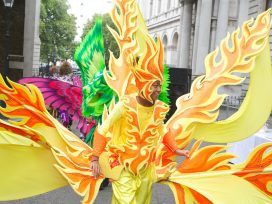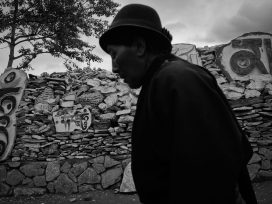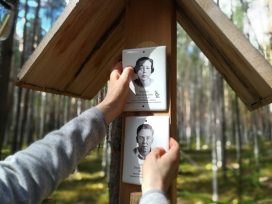The Austrian TV channel ORF 2 recently put together an evening programme commemorating the fortieth anniversary of the Warsaw Pact invasion of Czechoslovakia. The programme was centred around a documentary created by Manfred Christ and Michael Kreisel entitled Prague Spring.
Unfortunately, the attempt itself to expose the significance of the so-called Czechoslovak revival within the framework of the world events of that time manifested a considerable tendency towards generalization. The events of the Prague Spring were dragged into an unhappy union with the hippie movement in America, as well as with the student demonstrations in France and Germany, without the authors taking into account the fact that all three latter countries were, unlike Czechoslovakia, a part of the democratic world. The authors thus (perhaps unwittingly?) drove their viewers to adopt an impression that the eventual suppression of the Prague Spring by tanks and guns was not particularly different from the street battles between the happy-go-lucky French students and the French police armed with truncheons.
The main theme of the film was, however, the circumstances and events surrounding the occupation and the relationship between Czechoslovakia and the Soviet empire. The documentary was (besides the journalistically aseptic footage from the film archives) composed on two levels.
The first level comprised staged performances featuring Jan Hrusínsky pathetically playing the role of Alexander Dubcek. Hrusínsky mounted a highly theatrical embodiment of a spirited and brave politician bursting with irony, who allowed himself to get drunk, metaphorically and literally, on Brezhnev’s vodka and who strove to fight for the country till the last drops of his sober powers. The historical facts that Dubcek et consortes (with the honourable exception of Frantisek Kriegel) signed an oath of loyalty to Brezhnev and his occupation forces, and that he shortly thereafter signed the so-called “truncheon act”, was not significant enough for the filmmakers to mention.
Considering the way in which the scenes of Dubcek and his government were portrayed, I assume that Christ and Kreisel relied on the Zdenek Mlynár’s novel Frost Comes from the Kremlin. I do not wish to analyse this novel here. I would just like to point out that not even in this novel was Dubcek portrayed as a fearless half-god. The authors, however, insisted on an immaculate, and hence an attractive, hero to serve up to their viewers, and thus the “Dubceko-Hrusínsky” mash-up came into being.
The second level of the documentary was centred on the procession of talking heads who were mostly witnesses to the events. And behold whom the authors let shine! Besides Dubcek’s mawkish secretary in a pink shirt, the following were given the reign of the stage: Antonín J. Liehm, Kamila Moucková and Jirí Pelikán. The Austrian documentarists left nothing to chance. But really – why not? The chosen threesome were bona fide eyewitnesses that were involved in the August events and what preceded them. But why did the documentary fail to provide a similar platform for the people from the opposite side of the political spectrum, i.e. to those who were never in the least involved with the communist ideology (and there are scores of those)? This omission created a picture in which the “revival of the nation” in the sixties was driven wholly by the reform communists, and that it was those who eventually defended it who bore the weight of the punishment. The protagonists on the screen can hardly be blamed for creating this impression, especially when it is possible that the authors extracted their testimonies from the archives (which was certainly the case for Pelikán’s part).
In any event it is clear that the Prague Spring document is a work of a dilettante. Jan Hrusínsky confessed in one of the server discussions that “a shiver ran down his spine” during the shooting. I am not surprised. I had a similar feeling during the screening.
What did surprise me more than the documentary itself, however, was the fact that during the subsequent round table discussion, which was attended among others by Jirí Grusa, no one threw any doubt on the film that had just been screened. Did the debaters not have the opportunity to watch the film? Was the debate pre-recorded? Who knows. Grusa and Irena Brezná did reminisce with a certain air of importance on their activities when the occupation came, and the round table continued to revolve only around the banal historic and political reflexions, and parallels on the theme of Russian occupation.
Several weeks before this evening I got my hands on a publication which came out in connection with the Czech-German cultural project ZIPP and which is dedicated to the year 1968 in Czechoslovakia. Not surprisingly, it also contained an interview with Jirí Grusa. And we should bow our heads before his humble declaration that “without the Czech literati – without Kundera, Kohout, Havel or me – the developments culminating in the Prague Spring would not even have been possible.”
It appears that the fortieth anniversary has turned the events of August ’68 into a peddler’s paradise. One group uses it to mould a demagogic documentary film, the other to prop and polish their respective personae – and all do so in the name of a good thing.






